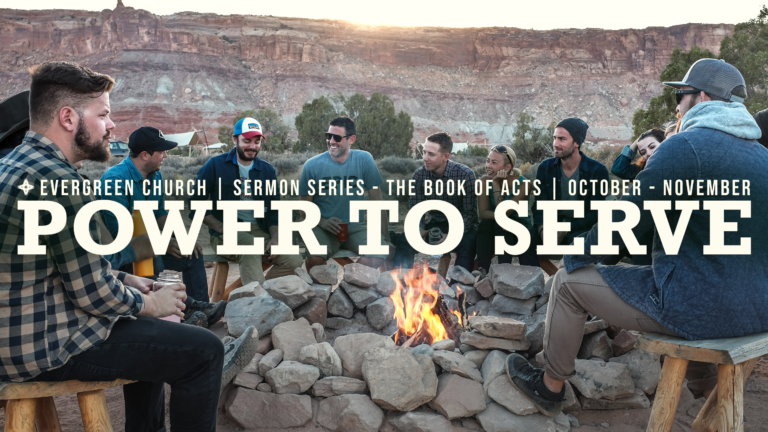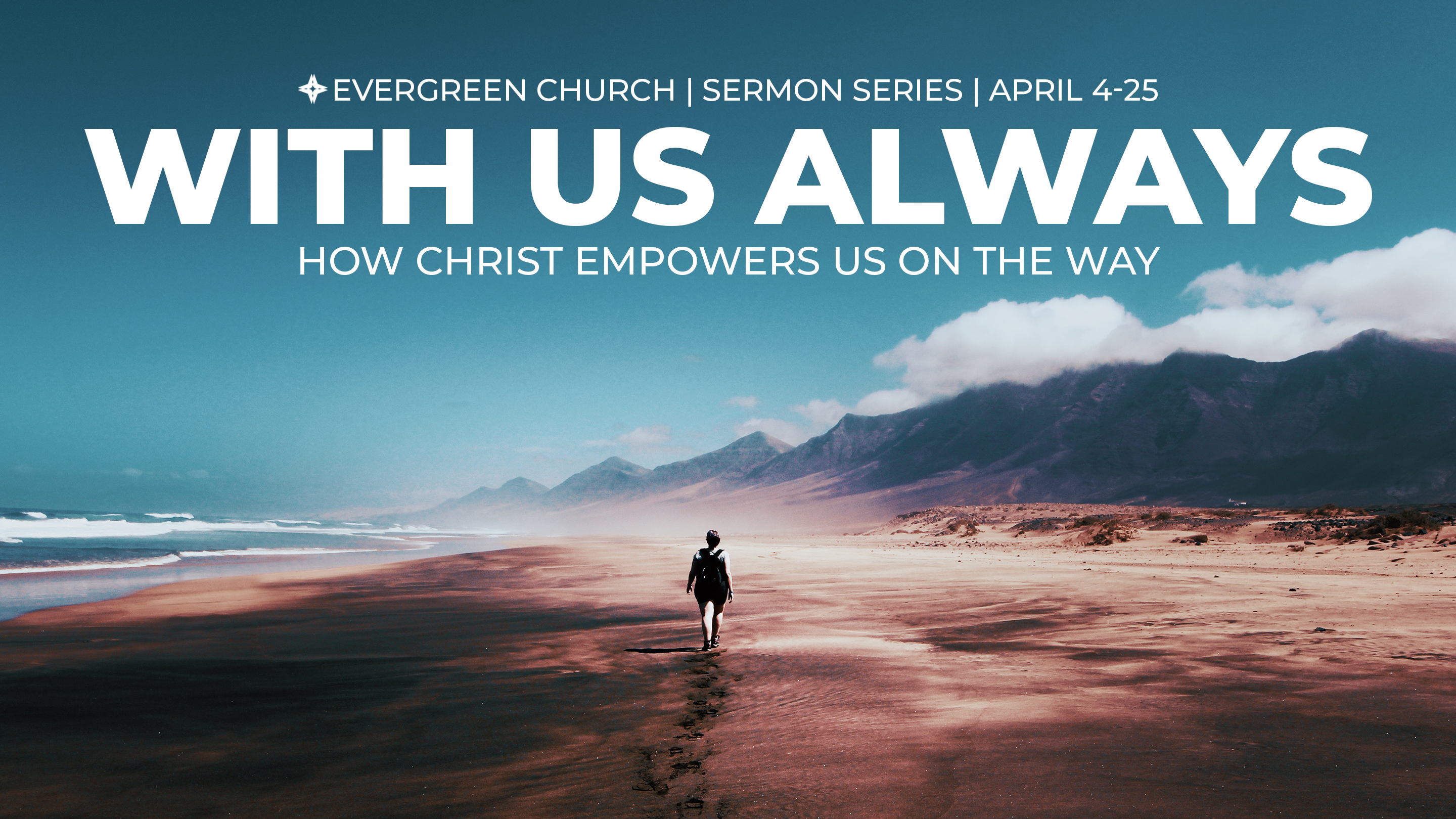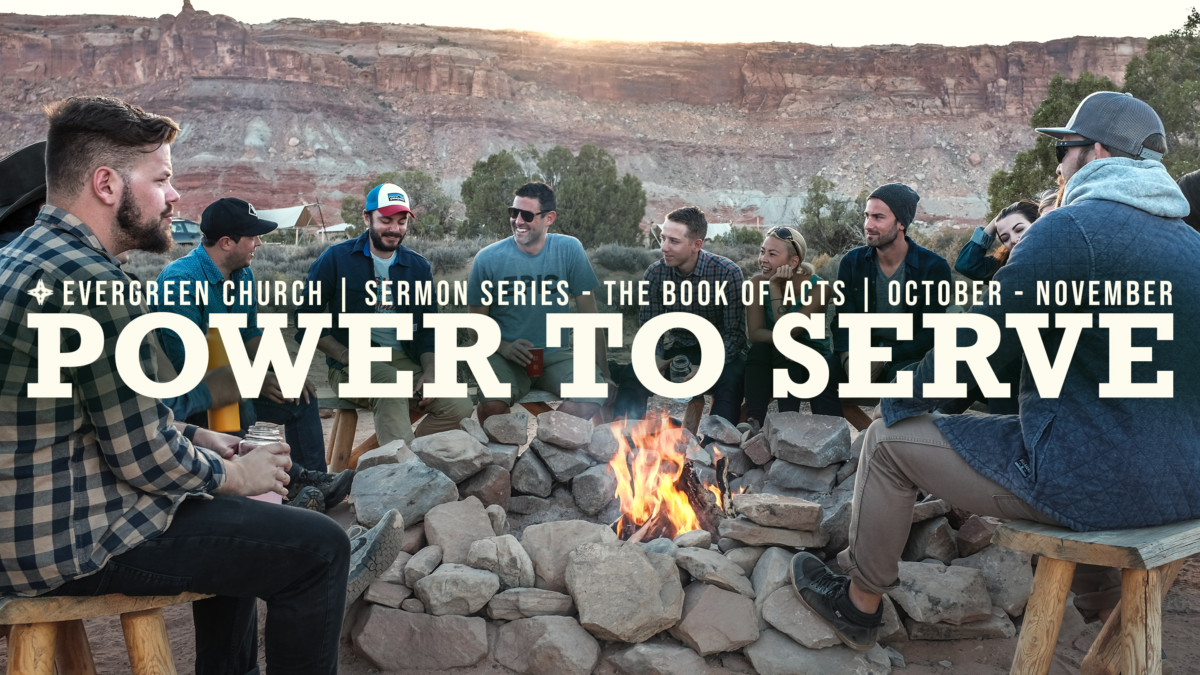
[For an audio version, go here]
Have you felt overwhelmed at any point this year? To ask is to answer. 2020 has been a year like no other. It has been overwhelming!
Think about it, people have last their businesses. People have moved to online work and online school. Many are trying to work from home while their kids do school from home, staring at a screen for 7 hours a day. Many people are isolated, not just the vulnerable, but those who care for the vulnerable. There are mental health issues. There are financial issues for businesses, churches, and families. And, by the way, there’s also a presidential election this year.
So, in the midst of an overwhelming year, what does God want us to do? Let me tell you exactly what He wants us to do: reach out in love and service to those around us.
What??? You might respond! I’m already overwhelmed, and you want me to add to it reaching out to others! That’s crazy! How in the world am I supposed to do that?
There’s a simple answer: God’s power. The Holy Spirit. You shall receive power when the Holy Spirit comes on you!
Think about this. Jesus left 120 disciples behind, and He told them to essentially let the entire planet know about Him. How were they were going to do this? “You will receive power when the Holy Spirit comes on you . . .” (Acts 1:8).
That’s what this whole series is about, but today, I want to ask, does God really want to use me? After all the ways I’ve failed and all the wrongs I’ve done, does God really want to use me? This passage gives us an emphatic answer.
The Prelude to the Passage
The book of Acts is the sequel to the book of Luke. The book of Luke tells us all the things that Jesus began to do and to say before He went up into heaven. The book of Acts tells us what Jesus did after He ascended into heaven.
Through all of Jesus’ suffering, trials, and resurrection, several of His disciples had stuck with Him. Jesus told them, “But you will receive power when the Holy Spirit comes on you; and you will be my witnesses in Jerusalem, and in all Judea and Samaria, and to the ends of the earth” (Acts 1:8). This meant that they would be Jesus’ representatives to tell the world about Him. However, they wouldn’t have to rely on their own resources. Jesus would send them the Holy Spirit. The 3rd person of the Trinity would come in power to enable them to serve the world. That was the promise.
This teaches us how much Jesus values His disciples. He leaves and wants them to be His representatives to the world. That’s how significant Jesus thought they were, and that’s how significant He thinks you are! He gives you all the resources you need and sends you out into the world to serve it with power.
A few days after Jesus said this, the Holy Spirit came upon them. The sign was a great wind, for Spirit in Greek and Hebrew means wind. The Spirit is also compared to a fire, and so flames of fire on their heads. The promised Spirit had come. God showed that this was His work by enabling them all to speak in different languages. Everyone heard them in their own language and understood them. However, we always want an easy explanation for things we don’t understand. Some mocked them and said that they were drunk.
At this point, Peter stood up to explain what was going on. He told them that they were not drunk. It was much too early for that. He told them that Jesus had risen from the dead and had sent His power upon them to enable them to do what they observed. This was clear evidence that God had made Jesus both “Lord and Christ.”
The People in this Passage
Now, to whom is Peter speaking? I want you to pay very careful attention to the people to whom Peter is speaking. He says in v. 36, “Therefore let all Israel be assured of this: God has made this Jesus, whom you crucified, both Lord and Messiah.” They were the people who put Jesus to death.
Killing Jesus is a pretty big crime. He says in Acts 3:15, “You killed the author of life, but God raised him from the dead.” You killed the author of life! How could you do that?
Now, think about your own life. What have you done? What sins have you committed?
Maybe you got made at the worst time and made a fool of yourself.
Maybe you abused someone physically or emotionally that has led to alienation.
Kids, have you ever done something really wrong that you knew was wrong and that you still think about? I know I did. I still look back on those things with regret.
Maybe you had an opportunity to do something really good but you did something stupid and blew it.
Maybe you had a sexual relationship that you knew was wrong or you cheated on your spouse.
Maybe you got drunk at your best friend’s wedding and ended up doing something that made you an embarrassment to yourself and your best friend.
Maybe it’s something else.
The point is that we’ve all done things that make us feel guilty. We’ve all done things that are painful to remember. But we haven’t actually killed Jesus. That’s pretty bad.
The Promise in this Passage
And what does God say to these killers of Jesus? “Repent and be baptized, every one of you, in the name of Jesus Christ for the forgiveness of your sins. And you will receive the gift of the Holy Spirit.” Let’s unpack that.
What does God want them to do? He wants them to say they’re sorry. He wants them to acknowledge they did the wrong.
Second, he wants them to be baptized. This would mean to publicly acknowledge that they had done the wrong thing and to now accept that Jesus was right.
If they will do those two simple things, He will forgive them. What he says is that anyone who admits they are wrong and then acknowledged Jesus as Lord will be forgiven. That’s it. They don’t have to do a whole lot. Just acknowledge their wrong and commit to doing what’s right. That’s the grace of justification by faith alone. Forgiveness is a free gift.
Now, go back to all the things we talked about in the previous section. If God was willing to forgive those who would kill His own Son, won’t He forgive you? Of course, He will. It’s an argument from the greater to the lesser. If God is willing to forgiven those who killed His Son, won’t He forgive you? God is a God who forgives. Wherever you’ve been, whatever you’ve done, however much shame you feel, God is there with forgiveness. He will cast your sins as far as the east is from the west. That’s His promise.
But there’s much more. He says, “and you shall receive the Holy Spirit.” In the context this means that God not only forgives you, He values you and wants to use you. He wants to be your partner, your friend, and your co-worker in His mission. He will give you power to serve.
Now, in creation, we are all part of God’s mission to bring the creation to a place that shows forth God’s glory. When we learn, when we parent, when we work, when we teach, when we organize, when we garden, when we create, we are God’s partners in His mission to make the world into a beautiful place that shows forth His glory.
But He also want to be our partner in His mission to restore people to Himself. He wants us to be His partner in His work of redemption, redemption and creation. He wants to bring people who have turned from Him and are under His wrath back into forgiveness and fellowship with Him. He wants us to share the good news about Jesus. It’s in Him we have those things. He wants to use us to make that happen. That’s what it means to experience the gift of the Holy Spirit. It is power to serve in God’s work of redemption.
That means that God wants to use you. Again, if God is willing to use those who killed His Son and partner with them in His mission to the world, then God will surely use you. If He partnered with those who were willing to kill the Author of life, then He will partner with you, no matter what you’ve done, where you’ve been, or what you’ve left undone. God wants to use you! That’s for certain.
This doesn’t mean you have to enter full-time Christian service or be a pastor. The book of Acts tells us that people partner in God’s mission to redeem the world in a variety of ways. They walk on their way and are open to talking to the people God leads them to like Philip. They do deeds of service that show the love of God like Dorcas. They cross boundaries to people who are different from them like the Christians in Antioch. They gather people together like Lydia. They invite people into their homes and talk about the Lord like Aquilla and Priscilla did with Apollos.
The bottom line is that they are open. They are open to the work of the Spirit. They are open to people and how God might use them. That’s what it means to receive and live in the gift of the Holy Spirit.
Conclusion
Look, we are already doing this to a degree. I think of a couple in the church who asked me to pray for a woman to whom they were ministering. I think of another couple who has made their neighborhood their mission. All through Covid, they’ve been actively ministering to their neighbors. They have keys to their neighbor’s houses because they take care of them when their neighbors are gone. They do this because they see God’s mission to bring restoration to people, and they want to be a part of it.
However, we’ve got to be reminded of this. We’ve got to remember what God is doing and wants to do in our lives. We’ve got to fan the flames of the Spirit in our life. That’s what this series is for. It’s a reminder for me, and it’s a reminder for you. We’ve got to remember: God wants to use us. God wants to partner with us. God wants to empower us to serve the world.
Don’t let the past keep you from it. God offers you forgiveness of sins. He offers a fresh start to you today. But he wants to give you not only a fresh start with Him. He wants to give you a fresh reason to exist. He wants to use you in the life of the people around you. This is the gift of the Holy Spirit. It is always and ever available. There is always a fresh start with God. We simply need to accept and receive it and be open to the people around us and how God wants to use us. He will supply the power to serve. Amen.








